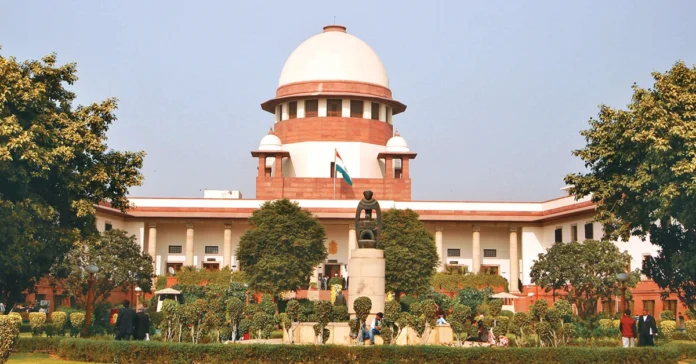The Supreme Court on Friday directed a trial court in Karnataka to conduct a fresh hearing on the petition seeking to restrain the publication of allegedly defamatory reports in the Dharmasthala mass burials case.
The Bench of Justice Rajesh Bindal and Justice Manmohan passed the order on a petition filed by Harshendra Kumar D, Secretary of the Dharmasthala Temple institutions, challenging the Karnataka High Court order that quashed the media gag imposed by a Bengaluru civil court on YouTube channel Kudla Rampage regarding its coverage in the Dharmasthala mass burial case.
Appearing for the temple administration, Senior Advocate Mukul Rohatgi argued that day after day, news channels and social media were running defamatory reports. He showed the Court posts of allegedly defamatory internet memes.
Noting that the temple could claim damages for such defamatory posts, the Apex Court questioned whether a media gag should be imposed.
It observed that gag orders were super injunctions, which could be passed only in the rarest of rare matters. Gag orders stifled free speech. In case a journalist came to know about a police officer possessing the number of a terrorist, this information could not be published. The present case involved a sanitation worker. If a super injunction was passed, even his statement could not be reported, added the Bench.
The top court of the country said since there was no documentary evidence, the matter could be considered by the trial court itself.
Rohatgi remarked that if a judge was shown accepting money, what would happen to the institution.
The Bench said it may issue orders to take down such memes. There has tobe some limit to it, but gag orders were not required.
The Apex Court asked Rohatgi to show the material to the trial court. Let them apply their mind independently and decide, it added.
Earlier on August 7, a Bengaluru court rejected the Dharmasthala temple administration’s plea to continue the interim injunction that restrained news outlets and social media from reporting on the case.
Additional City Civil and Sessions Judge Anitha M dismissed the application, effectively ending the sweeping gag order that had barred media reportage since July 21.
The controversy stemmed from a startling police complaint filed by a former sanitation worker of the Dharmasthala Manjunathaswamy Temple. The worker alleged that he was forced by temple supervisors to bury multiple bodies over nearly two decades. The claims sparked widespread media coverage and public discourse.
Although the complaint did not name any specific accused or suggest foul play, the revelations led to a defamation suit by Harshendra Kumar, Secretary of the temple institutions. The suit listed a staggering 8,842 links across platforms—over 4,000 YouTube videos, thousands of Facebook and Instagram posts, and several tweets, articles, and Reddit posts—alleged to be defamatory.
On July 21, then presiding judge Vijay Kumar Rai, issued a blanket injunction on reporting until August 5. However, questions of judicial conflict emerged when journalist Naveen Soorinje pointed out that judge Rai was an alumnus of the SDM Law College in Mangalore, an institution run by the Dharmasthala Trust. Acknowledging the potential perception of bias, judge Rai recused himself and the matter was transferred.
Appearing before the new judge, Harshendra Kumar argued that the Karnataka High Court’s recent order lifting the gag applied only to YouTube channel Kudla Rampage and sought continuation of the ban against all other parties.
Appearing for Kudla Rampage, Advocate Sakshi Satish opposed this claim. She argued that the High Court had held the initial injunction to be legally untenable and violative of procedural law.
Judge Anitha M agreed and dismissed the plea, thereby lifting restrictions on all media coverage related to the case.
The ruling marked a crucial moment for transparency, especially in matters involving public faith institutions. While the truth behind the mass burial allegations remained under investigation, the court’s decision to strike down censorship has sent a strong message about upholding constitutional principles of free expression.


